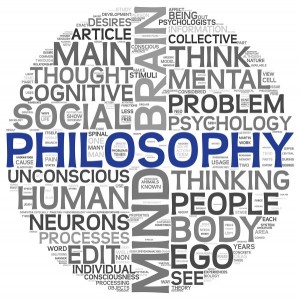Leading ADHD Clinic in NSW
Providing the most comprehensive assessment, diagnostic and therapy services for both children and adults across NSW & Australia.Far from our Centre?
Now offering Skype therapy for our out of area patientsUsing the latest scientifically validated tests and treatment protocols
-
Recent Posts
About Us
Our Philosophy
This Clinic was created due to the high demand for a specific ADHD (Attention-deficit/hyperactivity disorder) clinic that focuses not only in children but also adults, not just medicating our patients but providing a wide range of therapies which aim to improve long term outcomes. At our clinic we have a unique mix of ADHD experts that each work within different areas. We have neuropsychologists conducting in-depth comprehensive assessments of neurocognitive functioning. We also have clinical psychologists and psychologists who can treat the common social and emotional issues associated with ADHD. Most importantly we have experts trained in cognitive remediation, to help improve the core cognitive weaknesses found in ADHD. We aim to provide a very comprehensive and wholistic assessment & treatment service, to help maximise functioning in all areas of life.
Why our clinic is unique
This clinic aims to conduct comprehensive psychometric testing including attention, executive and other processing based assessment to try and pinpoint the precise cognitive issue underlying functional attention weaknesses. Certain doctors rely upon checklists and clinical interviewing and offer medication as a stand-alone solution, which may result in certain processing issues being masked in the short-term rather than being directly worked upon and improved. Medication also only typically helps a small percentage of the symptoms, leaving many issues untreated, and reducing functional outcomes. We will conduct a thorough neuropsychological assessment to pinpoint any cognitive and learningdeficits, and we will then design a unique and individualised therapy program to help the patient in all areas of their life. Look at our assessment and treatment pages to see the comprehensive assessment and therapy solutions we offer.
Our reluctance to use medication as a first stage treatment
Whilst we are not against medication at our clinic, and do think it can be valuable for very young children with learning delays (who are too young for cognitive training), or older children engaging in risky behaviours at risk for expulsion, typically we encourage patients aged 7+ to actually learn lifelong strategies to minimise the invasiveness of their issues and build their core cognitive skills so their skills are maximised for life. Unfortunately the main stimulants used to treat ADHD typically only last from around 4-10 hours, meaning that at best someone who has taken medication at 7am will have benefits until around 5pm. Most homework and homelife occurs after 5pm, and this can create chaos in the mornings (before medication kicks in) and after school (when medication wears off). Families often need strategies to manage homework and home behaviour even when kids are taking medication, so the therapies we offer are considered invaluable by even patients on medication. In adulthood we support medication being used intermittently for important projects, events or work as needed, however as experts in this area we have seen the problems that medication can sometimes create socially when medication wears off at night. One of the key issues that ADHD can create are social issues and many people struggle to maintain relationships as stimulant medication cannot cover them when socialising at night. For this reason we prefer a broader, more wholistic approach that addresses the social, academic and occupational symptoms present in people with ADHD, so that symptom reduction goes well beyond the 4-10 hours of medication use.
ADHD 7-Step Program
| Step One: Accurate Diagnosis | Comprehensive standardised neuropsychological assessment of cognitive processing skills in order to determine whether the core processing issue creating the functional attention weaknesses is attention based or non-attention based. This is the crucial first step as all the following stages of intervention will be based on the precise findings of this stage. |
| Step Two: Cognitive Remediation Intervention | Depending upon the nature of the core cognitive issues found in Step 1, we will then formulate a personalised program in order to remediate the precise cognitive issues found (eg. visual sustained attention, auditory sustained attention, working memory, attention pan, switching attention, divided attention, planning, organisation, cognitive flexibility etc.). This program may actually treat any core neurophysiological dysregulation via neurofeedback. It may also include a cognitive training program individually designed to enhance skills in any of the above noted areas. |
| Step Three: Parent, relationship &/or family management | ADHD does not only affect the individual but can have a negative impact upon relationships and family life. Where required, we can do family/relationship therapy to help improve relationships and happiness at home. For children living at home this step will involve training on how to parent a child with ADHD. |
| Step Four: Educational or vocational interventions | ADHD can have negative affects on schooling or career of individuals. This step will involve examining these issues and addressing them so that any impact is minimised or even removed. |
| Step Five: Social Skills Training | Peer relationships are an important factor in treatment people with ADHD. Often inappropriate behaviours or poor organisation can affect peer relationships and create some level of social isolation. Social skill training (with an ADHD based twist) can be helpful in improving the ability both to make and maintain friendships. |
| Step Six: Emotional management & resilience training | Often self-esteem can be reduced in individuals with ADHD, along with high levels of frustration, anxiety and even depression. Treating these issues can be very important in helping improve quality of life. |
| Step Seven: Medication assessment & monitoring | Whilst medication is not our first line of treatment, often people come to us on medication and are not sure if the medication is working. We can assess both on and off medication, determine the core processing weakness, and then objectively assess the exact benefits of the medication and determine whether the medication is optimal, whether a change is required, or whether supplementary treatment is needed (ie. medication is not helping all cognitive weaknesses). |




